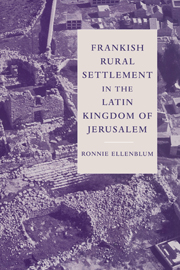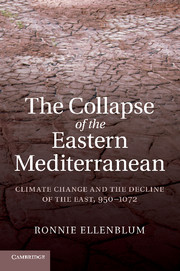Crusader Castles and Modern Histories
£43.99
- Author: Ronnie Ellenblum, Hebrew University of Jerusalem
- Date Published: November 2009
- availability: Available
- format: Paperback
- isbn: 9780521123648
£
43.99
Paperback
Other available formats:
Hardback, eBook
Looking for an inspection copy?
This title is not currently available on inspection
-
For the last 150 years the historiography of the Crusades has been dominated by nationalist and colonialist discourses in Europe and the Levant. These modern histories have interpreted the Crusades in terms of dichotomous camps, Frankish and Muslim. In this revisionist study, Ronnie Ellenblum presents an interpretation of Crusader historiography that instead defines military and architectural relations between the Franks, local Christians, Muslims and Turks in terms of continuous dialogue and mutual influence. Through close analysis of siege tactics, defensive strategies and the structure and distribution of Crusader castles, Ellenblum relates patterns of crusader settlement to their environment and demonstrates the influence of opposing cultures on tactics and fortifications. He argues that fortifications were often built according to economic and geographic considerations rather than for strategic reasons or to protect illusory 'frontiers', and that Crusader castles are the most evident expression of a cultural dialogue between east and west.
Read more- Includes a review of the historiography of the Crusades
- Based upon both Latin and Arabic sources
Reviews & endorsements
Review of the hardback: 'A significant work of scholarship … bold and innovative, extremely well-written … At heart, Ellenblum has written a study which is a new historical perspective on the crusading era.' Professor Jill Claster, New York University
See more reviewsReview of the hardback: 'This … would be of interest to castle enthusiasts, cultural and other historians and those who seek answers to the region's problems in lessons from the past, but the text is easy to read and accessible to the lay reader.' CHS Newsletter
Customer reviews
Not yet reviewed
Be the first to review
Review was not posted due to profanity
×Product details
- Date Published: November 2009
- format: Paperback
- isbn: 9780521123648
- length: 376 pages
- dimensions: 229 x 152 x 21 mm
- weight: 0.55kg
- availability: Available
Table of Contents
Part I. National Discourse and the Study of the Crusades:
1. From moral failure to a source of pride
2. The narrative of the Crusades and the nationalist discourse
3. Nationalist discourse and Crusader archaeology
Part II. Crusader Studies Between Colonialist and Post-Colonialist Discourse:
4. Colonial and anti-colonial interpretations
5. Who invented the concentric castles?
6. 'Crusader cities,' 'Muslim cities,' and the post-Colonial debate
7. Crusader castle and Crusader city: is it possible to differentiate between the two?
Part III. Geography of Fear and the Spatial Distribution of Frankish Castles:
8. Borders and their defence
9. Borders, frontiers, and centres
10. The geography of fear and the creation of the Frankish Frontier
11. The distribution of Frankish Castles during the twelfth century
Part IV. The Castle as Dialogue between Siege Tactics and Defence Strategy:
12. Siege and defence of castles during the First Crusade
13. Frankish siege tactics
14. Development of Muslim siege tactics
15. Sieges of the 1160s and 1170s and the appearance of the concentric castles
16. The construction of a frontier castle: the case of Vadum Iacob
17. The last years of the Latin kingdom: a new balance of power
Conclusion.
Sorry, this resource is locked
Please register or sign in to request access. If you are having problems accessing these resources please email [email protected]
Register Sign in» Proceed
You are now leaving the Cambridge University Press website. Your eBook purchase and download will be completed by our partner www.ebooks.com. Please see the permission section of the www.ebooks.com catalogue page for details of the print & copy limits on our eBooks.
Continue ×Are you sure you want to delete your account?
This cannot be undone.
Thank you for your feedback which will help us improve our service.
If you requested a response, we will make sure to get back to you shortly.
×
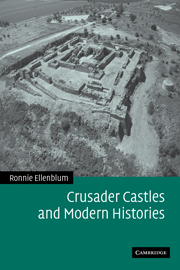
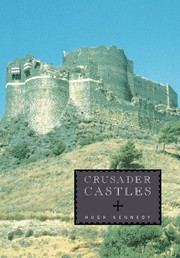
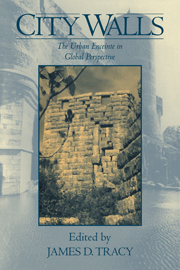
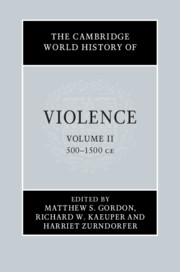
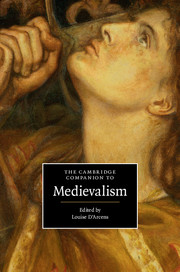
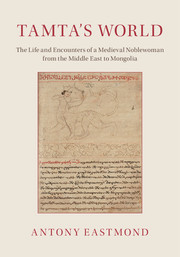
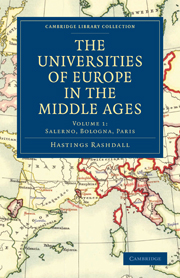
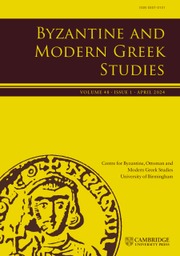
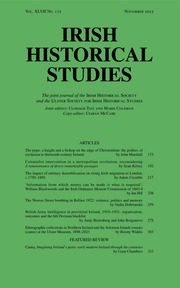
.jpg)

